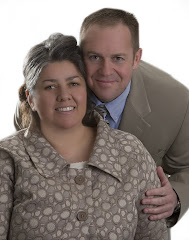 Pentecost needs to come to terms with the incredible gift of thinking. We have the feeling part down pat; we all could probably critically think a bit more though. I know I could. God is not against thinking, He just has a few caveats about right thinking. I think… we fail to appreciate the power the ability to think gives us over the things around us. Mirabeau B. Lamar said, “A cultivated mind, while guided and controlled by virtue, is the noblest attribute of man.” I think… only the cultivation of my spiritual man, under the tutelage of the Holy Ghost, is more significant or consequential to my future than my ability to think
Pentecost needs to come to terms with the incredible gift of thinking. We have the feeling part down pat; we all could probably critically think a bit more though. I know I could. God is not against thinking, He just has a few caveats about right thinking. I think… we fail to appreciate the power the ability to think gives us over the things around us. Mirabeau B. Lamar said, “A cultivated mind, while guided and controlled by virtue, is the noblest attribute of man.” I think… only the cultivation of my spiritual man, under the tutelage of the Holy Ghost, is more significant or consequential to my future than my ability to thinkHere is the rub, our ability to think is sometimes impeded and these impediments marginalize the potential of a spiritual, thoughtful mind. There are many impediments to the Christian mind and it is important that we acknowledge that they exist. We need to see a few of them so we can identify them for ourselves and reduce their affect on our thoughts. It is very unfortunate to lose out on the power of insightful conclusions, reliable philosophies, and well-constructed plans because of some kind of mental block.
Here are a few of these impediments that come quickly to mind;
·Myopia – the inability to see things from another perspective, generally caused by rigidly held unfounded dogma
·Ego – the unfortunate human liability that causes us to think we are the smartest person in the conversation sometimes
·Unresolved past - anything from yesterday that still has a negative influence over me for want of closure via resolution or resignation
·Emotionalism – the moments of peaked emotions that results in some state of irrationality
·Poor points of reference – the trouble with living in a small pond in a big world
In Romans chapter 12, Paul acknowledged a spiritual mind. I do not think… he meant that one abdicates the responsibility or privilege of thinking to be spiritual. I think… he meant it is possible to achieve greater clarity and creativity of thought through the power of the Holy Ghost. What problems could I solve if I was a more creative thinker? What answer are yet to be discovered by apostolic people who embrace the potential of reason and logic? What wonders await the people of God that learn to eliminate the impediments of the Christian mind? Selah!!!





